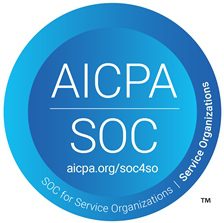Minneapolis, MN (October 23, 2019) — Solutran announced today that it has successfully sustained a Government EBT industry-leading system uptime rate of 99.98% since it began processing transactions in early 2018. During this time period, Solutran has processed more than 100 million transactions across WIC, SNAP and TANF programs, quadrupling its volume since 2018.
“Uptime is the most important success factor in EBT processing because it ensures that participants consistantly have access to their benefits when they need them,” said Barry Nordstrand, Chief Executive Officer of Solutran.
Solutran’s S3 platform utilizes a completely redundant system with multiple data centers, driving unrivaled uptime performance, along with layered security to keep cardholder data protected.
About Solutran®
Solutran, Inc. is a FinTech company, offering state-of-the-art EBT technology to both the public and private sectors. With more than 100 million total transactions processed, Solutran has established a long-standing reputation for excellence in customer service through delivering best-in-class, advanced technology solutions.
Solutran supports public sector government programs such as WIC, SNAP and TANF and provides processing support for 69 state and Indian Tribal Organization WIC Programs across the country. In the private sector, Solutran deployed its S3™ Solution Suite with the nation’s largest retailers and leading health plans in 2018, which includes the Healthy Savings® and Healthy Benefits Plus™ programs. Learn more about Solutran’s latest innovations at Solutran.com and follow Solutran on LinkedIn.
Related News
Solutran Reports 100% Uptime in EBT
Minneapolis, MN (Feb 13, 2018) — Solutran reported 100% Electronic Benefits Transfer (EBT) system uptime in the last 12 months of processing electronic Women, Infants, and Children (eWIC) and Supplemental Nutrition
New NYC Program Targets Food Insecurity By Making Healthy Food Cheaper
NY (Feb 08, 2018) — Article by Steven Ross Johnson
More Grocers Offer Healthy Savings Discount Program
(Feb 1, 2018) — Article by Alicia Kelso





